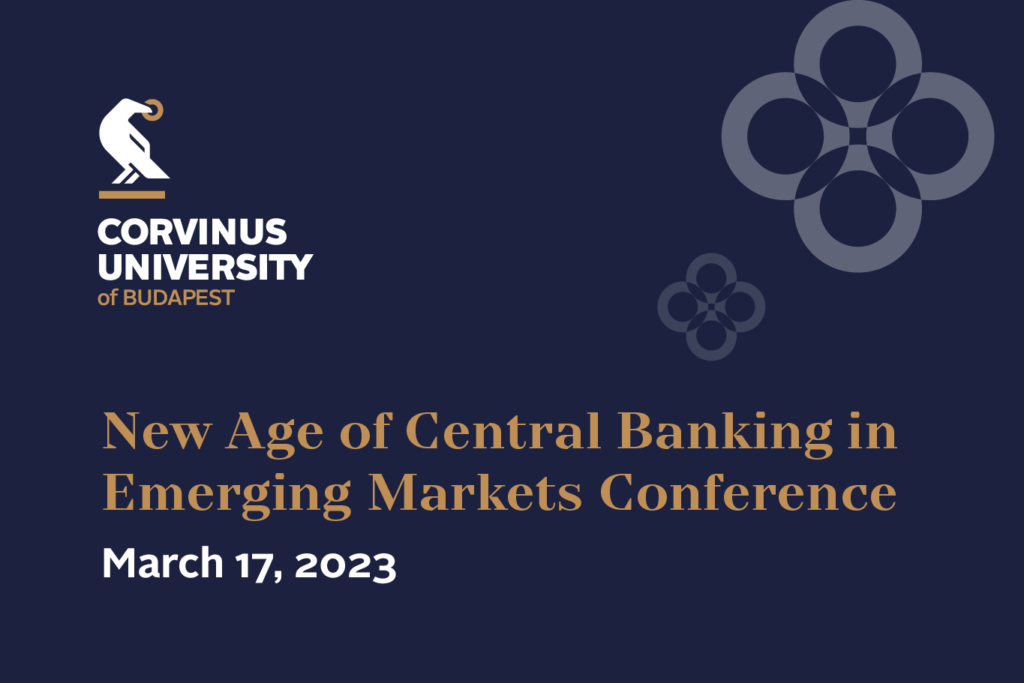New Age of Central Banking in Emerging Markets – International Conference

Venue: multiple locations
Registration (The conference is an invitation only event, however Corvinus faculty and students can register for participation here. Please note that without confirmation you cannot guaranteed access to the conference.)
The Corvinus University of Budapest is organizing an international conference titled New Age of Central Banking in emerging markets with the Bank for International Settlements (BIS) and the London School of Economics and Political Science and supported by the Central Bank of Hungary.
The event is organized on the margins of the event granting an honorary doctorate to Dr. Agustín Carstens, Managing Director of the BIS and former Governor of the Banco de Mexico, Minister of Finance of Mexico, and Deputy Managing Director of the International Monetary Fund.
Emerging market institutions used to lag behind those in advanced economies. Yet, catching up had been underway before the pandemic already, particularly in central banking. And, post-pandemic, central banks in major emerging markets have responded faster and more aggressively to signs of emerging inflation than their peers in advanced economies. Their timely reaction may have staved off higher inflation and larger capital outflows.
Are emerging market monetary policy frameworks better equipped to react to inflationary pressures? What roles have institutional development and governance in emerging markets during the past two decades played? Have there been clear gains for early starter emerging markets from policy tightening? To what extent systemic central banks such as the Federal Reserve and the European Central Bank have helped emerging market counterparts with currency swaps and repos? Is there a risk today of a global “over-tightening” by central banks around the world, in reaction to global inflationary pressures? And can – or should — central banks cooperate better to avoid such risks? We will also consider recent financial innovations and in particular the pros and cons of central banks’ introducing their own digital currencies, or CBDCs. The conference aims to cover these and related issues.